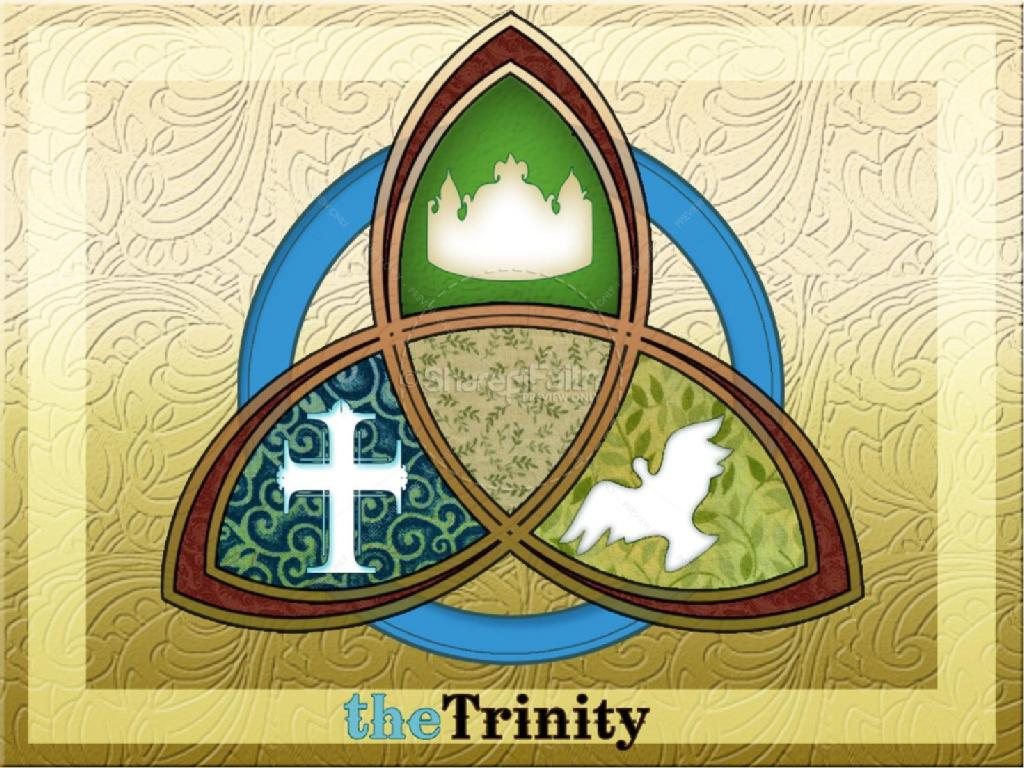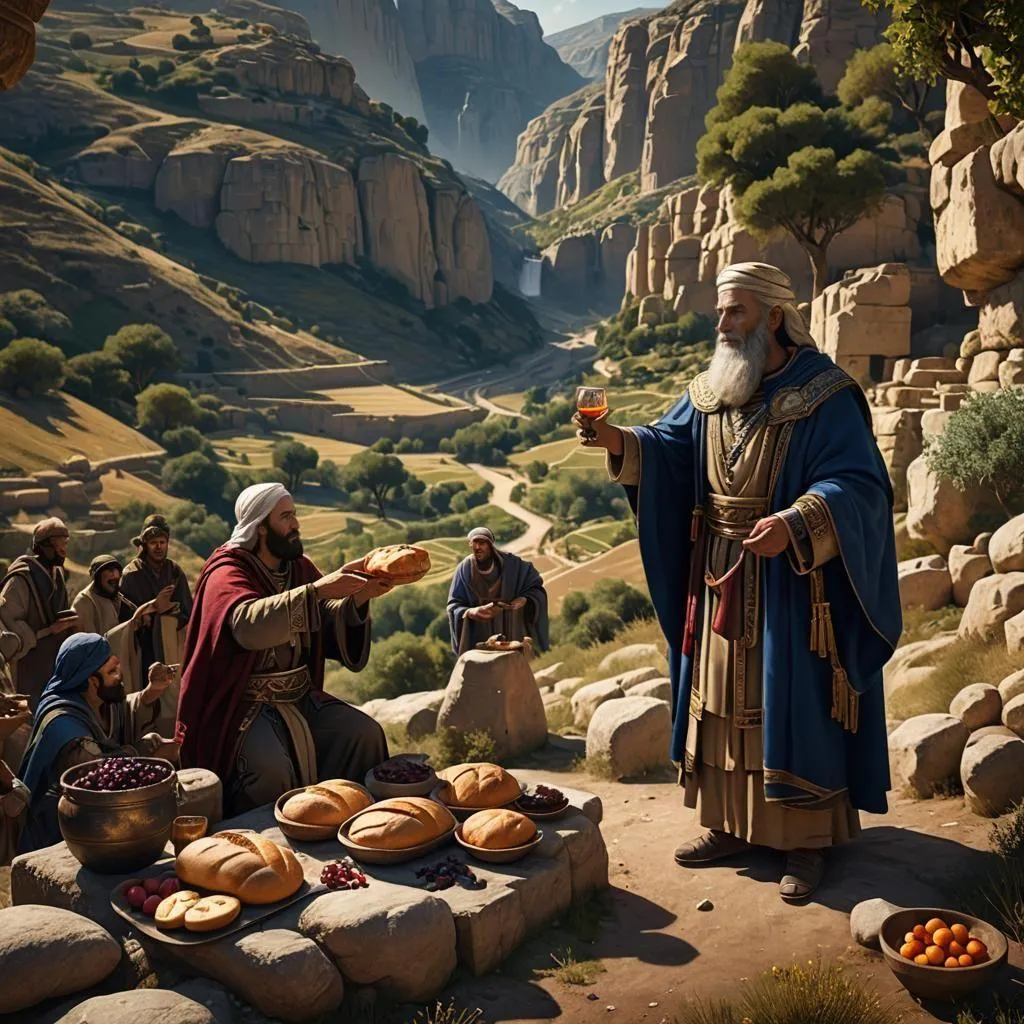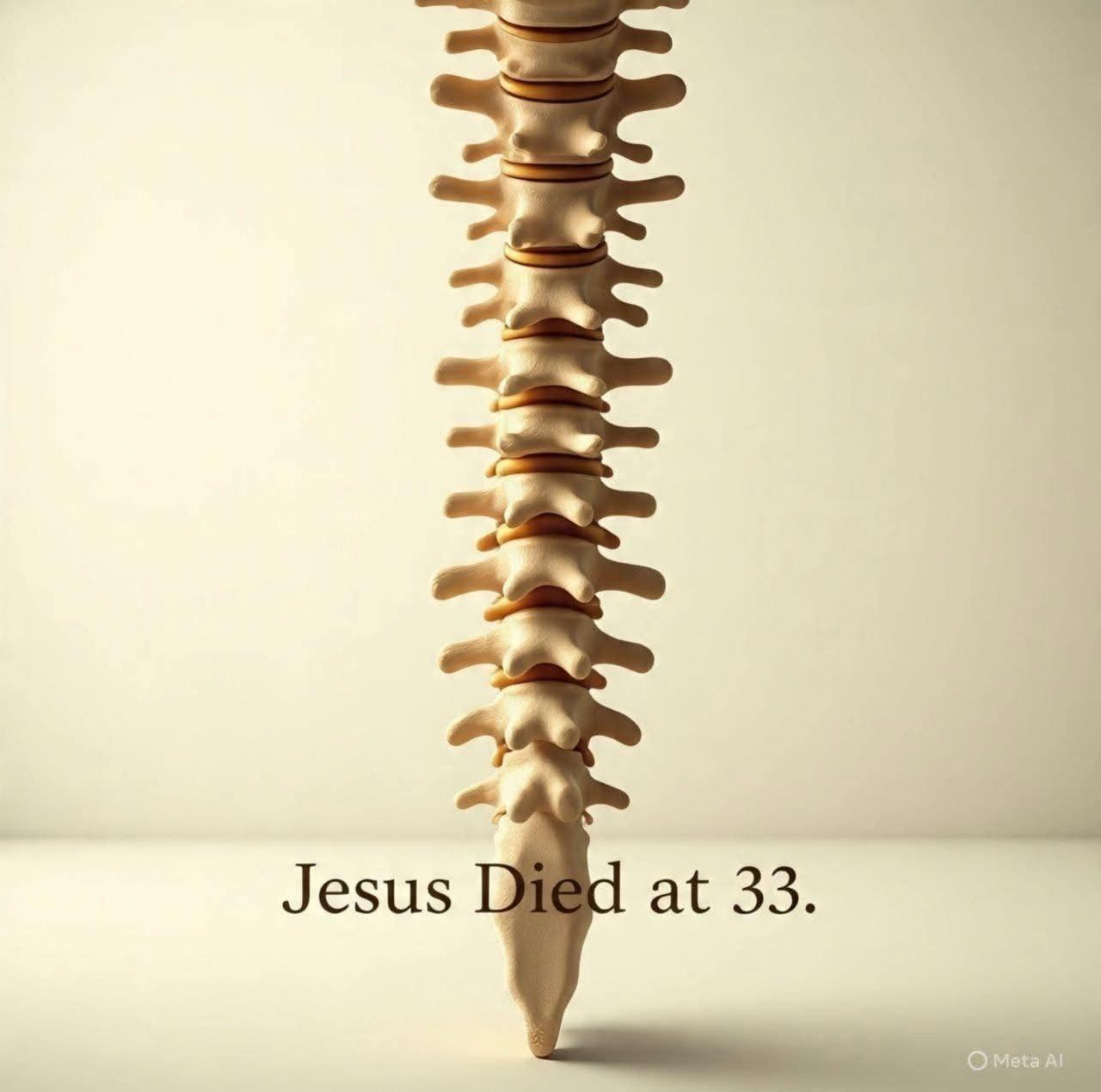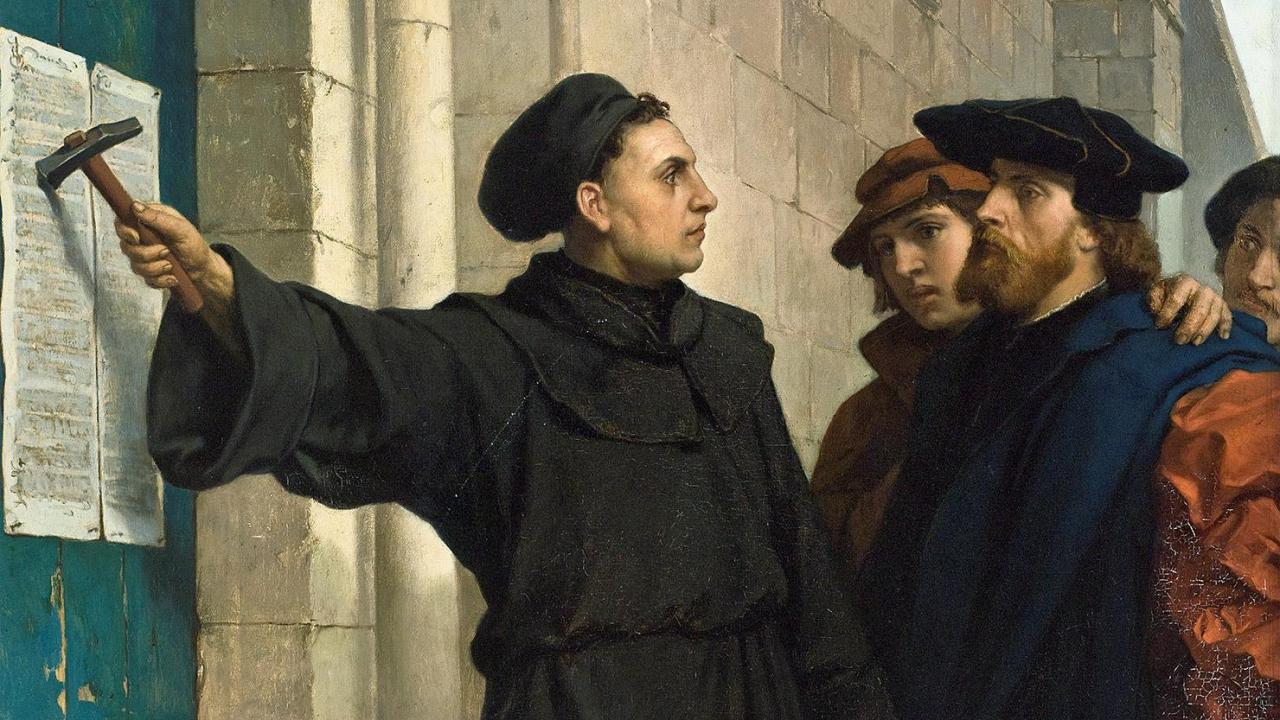Who is the New Jerusalem?
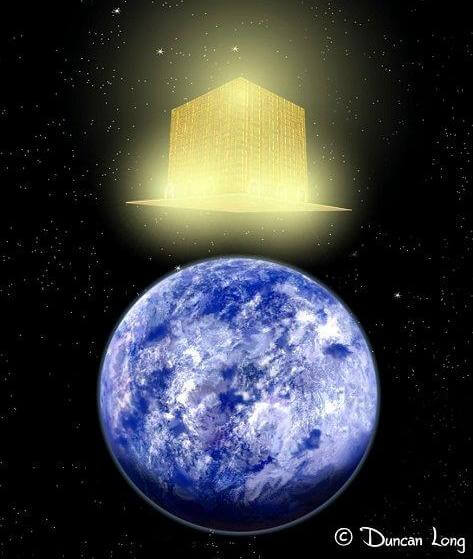
This is a sort of ‘addendum’ to the Revelation Fulfilled? article
Yes you read the title correct: WHO (not what) is the New Jerusalem?
To answer this, you must ask yourself: who is the Bride of Christ?
If you answered “the Church” (as in, the body of believers, not buildings) then you’d be correct as they are both one and the same!
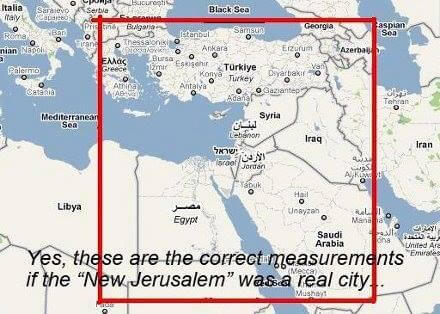
Maybe you’ve always wondered why the Church is called the “bride”? Well, let’s examine some Scriptures and see!
2 Corinthians 11:2
I feel a divine jealousy for you, for I promised you in marriage to one husband, to present you as a chaste virgin to Christ.
Here is Paul pleading with the Corinthian church to stay pure and true to the Gospel message they received, like a virgin on her wedding day; and also true to Jesus, as he is the husband of the believers.
Again, we see Paul use this imagery of marriage in terms of Christ and his Church in the letter to the Ephesians. Paul is teaching them (and us) on how to conduct ourselves within the bonds of marriage with the instruction for husbands and wives to lay down their lives for one another in love; this is also the analogy of how Jesus relates to his Church:
Ephesians 5:24-25, 32
Just as the church is subject to Christ, so also wives ought to be, in everything, to their husbands. Husbands, love your wives, just as Christ loved the church and gave himself up for her … This is a great mystery, and I am applying it to Christ and the church.
What has this got to do with the New Jerusalem?
Now when it comes to verses on the New Jerusalem, most people read the first two verses of Rev 21 and stop there, assuming that because it is called “the new Jerusalem” and “the holy city” that it must be an actual, brick-and-mortar city.
But the description doesn’t stop there.
Keep reading past Rev 21:1 and see how the Bride is described:
Revelation 21:1-2
Then I saw a new heaven and a new earth; for the first heaven and the first earth had passed away, and the sea was no more. And I saw the holy city, the new Jerusalem, coming down out of heaven from God, prepared as a bride adorned for her husband.
Revelation 21:9-10
Then one of the seven angels who had the seven bowls full of the seven last plagues came and said to me, “Come, I will show you the bride, the wife of the Lamb.” And in the spirit he carried me away to a great, high mountain and showed me the holy city Jerusalem coming down out of heaven from God.
Here we see the new heaven and earth, with the “holy city” – the new Jerusalem – coming down out of heaven.
Next we see that the new Jerusalem IS the bride of Christ.
So, if the Church/body of believers is the bride, and the new Jerusalem is also the bride – then they must be one and the same, and therefore symbolic of the physical reality of what the Church is! Unless of course you believe Jesus will be getting married to a literal city...
This vision of the new Heaven and Earth isn’t talking about a doing away with the current, physical realm, no; it’s a beautiful, poetic image of the marriage between God and his people – of the new way of the world now that Christ has accomplished his goal: defeating death and ushering in the New Covenant!
This is God showing that things work differently now. No longer is he only found in a temple, or a specific holy place (a lá John 4:21) – now he lives with us and in us!
This is why everything is new! Heaven will never be the same again, and neither will the Earth! God has set up a new temple where he dwells permanently now: in us, the Church!
Everything is New!
If we go back to Paul’s letters for a moment and read 2 Corinthians, we can see that this is what Paul was getting at too. He had grasped this and was desperately trying to get it across to the Corinthian church. Oh, how slow are we on the uptake too?
2 Corinthians 5:17-19
So if anyone is in Christ, there is a new creation: everything old has passed away; see, everything has become new! All this is from God, who reconciled us to himself through Christ, and has given us the ministry of reconciliation; that is, in Christ God was reconciling the world to himself, not counting their trespasses against them, and entrusting the message of reconciliation to us.
If we are “in Christ” then WE are that new creation! Hence why, in the preceding verse, Paul writes that we should “regard no one from a human point of view” if they are believers.
Through Christ, God was reconciling the world back to himself. Paul again picks up on this theme in Colossian 1:19-20, where he says that “God was pleased” to reconcile all things to himself, whether “on Earth or in Heaven” – in other words, all of Creation.
Going back to Rev 21 in verse five, this theme continues where “the one on the throne” declares: “See, I am making all things new.”
But what does “reconcile” really mean? The dictionary definition would be “the restoration of friendly relations”.
If God was now on friendly terms with “all things” in heaven or Earth, and has given us the “ministry of reconciliation” as “co-workers with Christ” (1 Cor 3:9), then why would God just destroy it all in fire and start afresh? Seems to counteract those “friendly relations” doesn’t it?
As we can see from the following quote, this view isn’t new and was around in the second century as something which was taught by one of the more prominent early Christian theologians:
"For if the heavens are to be changed, assuredly that which is changed does not perish, and if the fashion of the world passes away, it is by no means an annihilation or destruction of their material substance that is shown to take place, but a kind of change of quality and transformation of appearance. Isaiah also, in declaring prophetically that there will be a new heaven and a new earth, undoubtedly suggests a similar view."
– Origen (2nd Century), Principles, 2:6:4
The Holy City
With that in mind, let’s examine the rest of the description of the New Jerusalem. Verse three continues to build on the conjoining of the Heaven and Earth imagery:
Rev 21:3
See, the home of God is among mortals, He will dwell with them;
they will be his peoples, and God himself will be with them
God coming down to live in and with his people isn’t some new concept just found in Revelation either; we see this mentioned quite frequently in the New Testament:
John 14:23
Jesus answered, “If anyone loves Me, he will keep My word. My Father will love him, and We will come to him and make Our home with him.
Ephesians 2:22
You also are being built together for God’s dwelling in the Spirit.
2 Timothy 1:14
Guard, through the Holy Spirit who lives in us, that good thing entrusted to you.
Hebrews 3:6
But Christ was faithful as a Son over His household. And we are that household if we hold on to the courage and the confidence of our hope.
1 Corinthians 3:16
Don’t you yourselves know that you are God’s sanctuary and that the Spirit of God lives in you?
All of these verses about those in Christ being the dwelling places or the temple of God is reason why there is no need for a sanctuary in the New Jerusalem – because God now dwells within us! We are the temple!
Revelation 21:22
I did not see a sanctuary in it, because the Lord God the Almighty and the Lamb are its sanctuary.
The whole city is now a sanctuary unto the Lord, his glory fills it up. We can even see this prophesied way, way back in the Old Testament as far as Leviticus and Ezekiel:
Leviticus 26:11
I will place My residence among you, and I will not reject you.
Ezekiel 37:27
My dwelling place will be with them; I will be their God, and they will be My people.
But both of these verses come with similar stipulations to what Jesus said about he and the Father making their home in those who believe in Jn 14:21 – if God’s commandments are kept, then he will come and dwell in and with us, if not, he won’t.
I’ve quoted this before in one of my previous articles on the Olivet Discourse, but I’ll show it again as the letter of Barnabas is one of the earliest texts we have outside of the New Testament, and so reflects a very early view from the Early Church period and the theology surrounding a new temple.
Barnabas 16:5-6
"Again, it was revealed how the city and the temple and the people of Israel should be betrayed … For it is written, ‘And it shall come to pass, when the week is completed, the temple of God shall be built...in the name of the Lord.’ I find...that a temple does exist. Having received the forgiveness of sins…in our habitation God dwells in us….This is the spiritual temple built for the Lord.”
Examining the rest of the description of the New Jerusalem, the link between the symbolism of the body of believers as a temple and holy structure from the Epistles becomes clearer, as we can see from Ephesians.
Eph 2:19-22
So then you are no longer strangers and aliens, but you are citizens with the saints and also members of the household of God, built upon the foundation of the apostles and prophets, with Christ Jesus himself as the cornerstone. In him the whole structure is joined together and grows into a holy temple in the Lord; in whom you also are built together spiritually into a dwelling place for God.
Contrast this with Rev 21 again:
Revelation 21:14
And the wall of the city has twelve foundations, and on them are the twelve names of the twelve apostles of the Lamb.
And again, just before this verse, the description of the surrounding walls are named after the tribes of Israel:
Revelation 21:12
It has a great, high wall with twelve gates, and at the gates twelve angels, and on the gates are inscribed the names of the twelve tribes of the Israelites
Could these walls represent the righteous Israelites who came before? Those in whom God found favour, or those who kept his commandments and upheld the Law now uphold and guard this “city”?
Those faithful of old who the writer of Hebrews, in chapter 12, calls a “great a cloud of witnesses” which surround us – much like these walls surround the holy city.
What type of Kingdom?
Many people today believe and expect Jesus to physically come back to Earth and set up a kingdom and throne in the actual city of Jerusalem, and reign from there for exactly 1000 years.
That is despite his kingdom having “no end”, as the angel Gabriel said to Mary in Luke 1:33 (cf. Dan 7:27). Why reign physically and temporarily, if only to end it and carry on reigning spiritually in heaven?
But if the Kingdom is within us (Lk 17:20-21) and has come upon us by the power of the Gospel (Lk 11:20), and if the body of believers are the New Jerusalem and also reign with Christ (2 Tim 2:12; Eph 2:6), does that leave room for any of this being a literal new planet Earth, or a literal and gigantic city floating out of the sky?
We can also see from records about Domitian's persecution (~96 AD) that he feared the coming kingdom like Herod did. But when quizzed, the Christians said it was not an earthly one they were waiting for, but a heavenly one (though admittedly, they were still waiting for it to come at the end of time itself).
And when they were asked concerning Christ and his kingdom, of what sort it was and where and when it was to appear, they answered that it was not a temporal nor an earthly kingdom, but a heavenly and angelic one, which would appear at the end of the world, when he should come in glory to judge the quick and the dead, and to give unto every one according to his works.
– Eusebius, Church History, Book 3, ch. 20.6
This seems to be in keeping with what Paul wrote, when he said “flesh and blood cannot inherit the kingdom of God" in 1 Cor 15:50.
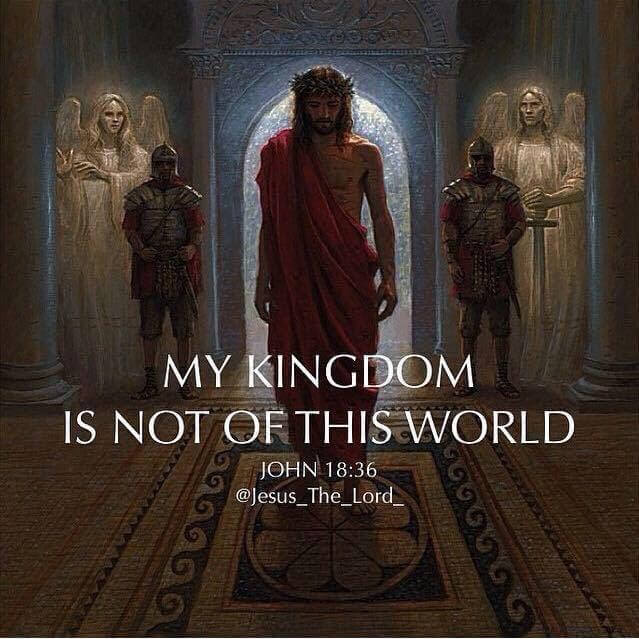
The similarities between the epistles, when they write about the Kingdom, and the New Jerusalem continue even when speaking of those who won’t enter it! The continuity across the Scriptures is a testimony unto itself at times, it really is quite amazing if one takes the time to look.
1 Corinthians 6:9-10
Do you not know that wrongdoers will not inherit the kingdom of God? Do not be deceived! Fornicators, idolaters, adulterers, male prostitutes, sodomites, thieves, the greedy, drunkards, revilers, robbers—none of these will inherit the kingdom of God.
Revelation 21:7-8
Those who conquer will inherit these things, and I will be their God and they will be my children. But as for the cowardly, the faithless, the polluted, the murderers, the fornicators, the sorcerers, the idolaters, and all liars, their place will be in the lake that burns with fire and sulfur, which is the second death.”
Gal 5:19-21
Now the works of the flesh are obvious: fornication, impurity, licentiousness, idolatry, sorcery, enmities, strife, jealousy, anger, quarrels, dissensions, factions, envy, drunkenness, carousing, and things like these. I am warning you, as I warned you before: those who do such things will not inherit the kingdom of God.
Revelation 21:27
But nothing unclean will enter it, nor anyone who practices abomination or falsehood, but only those who are written in the Lamb’s book of life.
Ephesians 5:5
Be sure of this, that no fornicator or impure person, or one who is greedy (that is, an idolater), has any inheritance in the kingdom of Christ and of God.
Revelation 22:14-15
Blessed are those who wash their robes, so that they will have the right to the tree of life and may enter the city by the gates. Outside are the dogs and sorcerers and fornicators and murderers and idolaters, and everyone who loves and practices falsehood.
It’s worth pointing out here that if the New Jerusalem really is a literal city on a brand new planet Earth, after the judgement etc. – then who are the people outside of it?
There is one passage in Revelation which talks about reigning on Earth, though. But it isn’t Jesus doing it, not physically at least.
Revelation 5:10
You made them a kingdom and priests to our God, and they will reign on the earth.
Who are the “they” mentioned in this verse? All those who were “redeemed for God by [Jesus’] blood” (Rev 5:9, cf. Rev 1:6)! This is also a fulfillment of what Daniel foresaw in his visions:
Daniel 7:18
But the holy ones of the Most High will receive the kingdom and possess it forever, yes, forever and ever.
But it doesn’t stop there: again in Rev 22 when the holy city is being described in some more detail, John writes that there is a river of “living water” flowing from the throne of God, lined with the Tree of Life on either side, where God’s people “will reign forever and ever” (Rev 22:5). These references to being a “kingdom” and “priests” harkens back to what Peter also wrote about in 1 Peter 2:9.
Leaves for Healing
There’s an important “clue” here about the nature of this city in the way the Tree of Life is described and its purpose – similar to what I pointed out a few paragraphs ago:
Revelation 22:2-3
The leaves of the tree are for healing the nations, and there will no longer be any curse.
Firstly, if this New Jerusalem appearing as a literal city is the culmination of world history after the judgement, second death, sheep and goats etc (in other words – there’s no one left except for God’s own people), why then do the nations still need healing?
Secondly, and maybe the most striking detail, is the mention that there will no longer be any curse. All throughout Scripture, there is one main thing which is always referred to as a “curse” – death (sometimes also synonymous with sin). And that is precisely what Jesus liberated us from by his own death on a cross!
Galatians 3:13
Christ has redeemed us from the curse of the Law by becoming a curse for us
While I recognise that the general (and possibly majority) view in the early church was of a literal, earthly millennial reign (at least until the fourth century when it began to be condemned and viewed metaphorically), I can't help but see the imagery of the New Jerusalem as a spiritual and figurative description of our present, physical reality as a body of believers in Christ.
But maybe it is both. Spiritually true now of the Church, and a more complete and realised state in the future? Or maybe the later Christians were right and the strictly literal interpretation was just spread by uninformed people which took hold in the teachings of the church (as some of the later writers assert).
I'm not exactly sure where I stand on the millennial reign, but I've done my best to present a thorough study of the New Jerusalem which falls under that general area of theology.
I'll leave you to draw your own conclusions.
Further Reading:
- Eusebius: http://www.ccel.org/ccel/schaff/npnf201.iii.viii.xx.html
- Barnabas: http://www.earlychristianwritings.com/barnabas.html
- Origen: http://www.newadvent.org/fathers/04121.htm
Leave a comment Like Back to Top Seen 5K times Liked 1 times
Enjoying this content?
Support my work by becoming a patron on Patreon!
By joining, you help fund the time, research, and effort that goes into creating this content — and you’ll also get access to exclusive perks and updates.
Even a small amount per month makes a real difference. Thank you for your support!
Subscribe to Updates
If you enjoyed this, why not subscribe to free email updates and join over 864 subscribers today!
My new book is out now! Order today wherever you get books
Recent Posts
Luke J. Wilson | 19th August 2025 | Fact-Checking
A poetic post has been circulating widely on Facebook, suggesting that our anatomy mirrors various aspects of Scripture. On the surface it sounds inspiring, but when we take time to weigh its claims, two main problems emerge. The viral post circulating on Facebook [Source] First, some of its imagery unintentionally undermines the pre-existence of Christ, as if Jesus only “held the earth together” for the 33 years of His earthly life. Second, it risks reducing the resurrection to something like biological regeneration, as if Jesus simply restarted after three days, instead of being raised in the miraculous power of God. Alongside these theological dangers, many of the scientific claims are overstated or symbolic rather than factual. Let’s go through them one by one. 1. “Jesus died at 33. The human spine has 33 vertebrae. The same structure that holds us up is the same number of years He held this Earth.” The human spine does generally have 33 vertebrae, but that number includes fused bones (the sacrum and coccyx), and not everyone has the same count. Some people have 32 or 34. More importantly, the Bible never says Jesus was exactly 33 when He died — Luke tells us He began His ministry at “about thirty” (Luke 3:23), and we know His public ministry lasted a few years, but His precise age at death is a tradition, not a biblical statement. See my other recent article examining the age of Jesus here. Theologically, the phrase “the same number of years He held this Earth” is problematic. Jesus did not hold the world together only for 33 years. The eternal Word was with God in the beginning (John 1:1–3), and “in Him all things hold together” (Colossians 1:17). Hebrews says He “sustains all things by His powerful word” (Hebrews 1:3). He has always upheld creation, before His incarnation, during His earthly ministry, and after His resurrection. To imply otherwise is to risk undermining the pre-existence of Christ. 2. “We have 12 ribs on each side. 12 disciples. 12 tribes of Israel. God built His design into our bones.” Most people do have 12 pairs of ribs, though some are born with an extra rib, or fewer. The number 12 is certainly biblical: the 12 tribes of Israel (Genesis 49), the 12 apostles (Matthew 10:1–4), and the 12 gates and foundations of the New Jerusalem (Revelation 21). But there’s no biblical connection between rib count and these symbolic twelves. This is a case of poetic association, not design woven into our bones. The only real mention of ribs in Scripture is when Eve is created from one of Adam’s ribs in Genesis 2:21–22, which has often led to the teaching in some churches that men have one less rib than women (contradicting this new claim)! 3. “The vagus nerve runs from your brain to your heart and gut. It calms storms inside the body. It looks just like a cross.” The vagus nerve is real and remarkable. It regulates heart rate, digestion, and helps calm stress, and doctors are even using vagus nerve stimulation as therapy for epilepsy, depression, and inflammation showing it really does “calm storms” in the body. But it does not look like a cross anatomically. The language about “calming storms” may echo the way Jesus calmed the storm on the Sea of Galilee (Mark 4:39), but here again the poetic flourish stretches science (and Scripture) beyond what’s accurate. 4. “Jesus rose on the third day. Science tells us that when you fast for 3 days, your body starts regenerating. Old cells die. New ones are born. Healing begins. Your body literally resurrects itself.” There’s a serious theological problem here. To equate Jesus’ resurrection with a biological “regeneration” after fasting is to misrepresent what actually happened. Fasting can indeed trigger cell renewal and immune repair, but it cannot bring the dead back to life. It’s still a natural process that happens...
Luke J. Wilson | 08th July 2025 | Islam
“We all worship the same God”. Table of Contents 1) Where YHWH and Allah Appear Similar 2) Where Allah’s Character Contradicts YHWH’s Goodness 3) Where Their Revelations Directly Contradict Each Other 4) YHWH’s Love for the Nations vs. Allah’s Commands to Subjugate 5) Can God Be Seen? What the Bible and Qur’an Say 6) Salvation by Grace vs. Salvation by Works Conclusion: Same God? Or Different Revelations? You’ve heard it from politicians, celebrities, and even some pastors. It’s become something of a modern mantra, trying to shoehorn acceptance of other beliefs and blend all religions into one, especially the Abrahamic ones. But what if the Bible and Qur’an tell different stories? Let’s see what their own words reveal so you can judge for yourself. This Tweet recently caused a stir on social media 1) Where YHWH and Allah Appear Similar Many point out that Jews, Christians, and Muslims share a belief in one eternal Creator God. That’s true — up to a point. Both the Bible and Qur’an describe God as powerful, all-knowing, merciful, and more. Here’s a list comparing some of the common shared attributes between YHWH and Allah, with direct citations from both Scriptures: 26 Shared Attributes of YHWH and Allah According to the Bible (NRSV) and the Qur’an Eternal YHWH: “From everlasting to everlasting you are God.” — Psalm 90:2 Allah: “He is the First and the Last…” — Surah 57:3 Creator YHWH: “In the beginning God created the heavens and the earth.” — Genesis 1:1 Allah: “The Originator of the heavens and the earth…” — Surah 2:117 Omnipotent (All-Powerful) YHWH: “Nothing is too hard for you.” — Jeremiah 32:17 Allah: “Allah is over all things competent.” — Surah 2:20 Omniscient (All-Knowing) YHWH: “Even before a word is on my tongue, O LORD, you know it.” — Psalm 139:4 Allah: “He knows what is on the land and in the sea…” — Surah 6:59 Omnipresent (Present Everywhere) YHWH: “Where can I go from your Spirit?” — Psalm 139:7–10 Allah: “He is with you wherever you are.” — Surah 57:4 Holy YHWH: “Holy, holy, holy is the LORD of hosts.” — Isaiah 6:3 Allah: “The Holy One (Al-Quddus).” — Surah 59:23 Just YHWH: “A God of faithfulness and without injustice.” — Deuteronomy 32:4 Allah: “Is not Allah the most just of judges?” — Surah 95:8 Merciful YHWH: “The LORD, merciful and gracious…” — Exodus 34:6 Allah: “The Most Gracious, the Most Merciful.” — Surah 1:1 Compassionate YHWH: “As a father has compassion on his children…” — Psalm 103:13 Allah: “He is the Forgiving, the Affectionate.” — Surah 85:14 Faithful YHWH: “Great is your faithfulness.” — Lamentations 3:22–23 Allah: “Indeed, the promise of Allah is truth.” — Surah 30:60 Unchanging YHWH: “For I the LORD do not change.” — Malachi 3:6 Allah: “None can change His words.” — Surah 6:115 Sovereign YHWH: “The LORD has established his throne in the heavens…” — Psalm 103:19 Allah: “Blessed is He in whose hand is dominion…” — Surah 67:1 Loving YHWH: “God is love.” — 1 John 4:8 Allah: “Indeed, my Lord is Merciful and Affectionate (Al-Wadud).” — Surah 11:90 Forgiving YHWH: “I will not remember your sins.” — Isaiah 43:25 Allah: “Allah forgives all sins…” — Surah 39:53 Wrathful toward evil YHWH: “The LORD is a jealous and avenging God…” — Nahum 1:2 Allah: “For them is a severe punishment.” — Surah 3:4 One/Unique YHWH: “The LORD is one.” — Deuteronomy 6:4 Allah: “Say: He is Allah, One.” — Surah 112:1 Jealous of worship YHWH: “I the LORD your God am a jealous God.” �...
Luke J. Wilson | 05th June 2025 | Blogging
As we commemorated the 500th anniversary of the Protestant Reformation this year, the familiar image of Martin Luther striding up to the church door in Wittenberg — hammer in hand and fire in his eyes — has once again taken centre stage. It’s a compelling picture, etched into the imagination of many. But as is often the case with historical legends, closer scrutiny tells a far more nuanced and thought-provoking story. The Myth of the Door: Was the Hammer Ever Raised? Cambridge Reformation scholar Richard Rex is one among several historians who have challenged the romanticised narrative. “Strangely,” he observes, “there’s almost no solid evidence that Luther actually went and nailed them to the church door that day, and ample reasons to doubt that he did.” Indeed, the first image of Luther hammering up his 95 Theses doesn’t appear until 1697 — over 180 years after the fact. Eric Metaxas, in his recent biography of Luther, echoes Rex’s scepticism. The earliest confirmed action we can confidently attribute to Luther on 31 October 1517 is not an act of public defiance, but the posting of two private letters to bishops. The famous hammer-blow may never have sounded at all. Conflicting Accounts Philip Melanchthon, Luther’s successor and first biographer, adds another layer of complexity. He claimed Luther “publicly affixed” the Theses to the door of All Saints’ Church, but Melanchthon wasn’t even in Wittenberg at the time. Moreover, Luther himself never mentioned posting the Theses publicly, even when recalling the events years later. Instead, he consistently spoke of writing to the bishops, hoping the matter could be addressed internally. At the time, it was common practice for a university disputation to be announced by posting theses on church doors using printed placards. But no Wittenberg-printed copies of the 95 Theses survive. And while university statutes did require notices to be posted on all church doors in the city, Melanchthon refers only to the Castle Church. It’s plausible Luther may have posted the Theses later, perhaps in mid-November — but even that remains uncertain. What we do know is that the Theses were quickly circulated among Wittenberg’s academic elite and, from there, spread throughout the Holy Roman Empire at a remarkable pace. The Real Spark: Ink, Not Iron If there was a true catalyst for the Reformation, it wasn’t a hammer but a printing press. Luther’s Latin theses were swiftly reproduced as pamphlets in Basel, Leipzig, and Nuremberg. Hundreds of copies were printed before the year’s end, and a German translation soon followed, though it may never have been formally published. Within two weeks, Luther’s arguments were being discussed across Germany. The machinery of mass communication — still in its relative infancy — played a pivotal role in what became a theological, political, and social upheaval. The Letters of a Conscientious Pastor Far from the bold revolutionary of popular imagination, Luther appears in 1517 as a pastor deeply troubled by the abuse of indulgences, writing with respectful concern to those in authority. In his letter to Archbishop Albrecht of Mainz, he humbly addresses the archbishop as “Most Illustrious Prince,” and refers to himself as “the dregs of humanity.” “I, the dregs of humanity, have so much boldness that I have dared to think of a letter to the height of your Sublimity,” he writes — hardly the voice of a man trying to pick a fight. From Whisper to Roar Luther’s initial appeal through formal channels was, predictably, ignored. He was advised not to make trouble. But as opposition mounted and corruption remained unchecked, the once quiet reformer grew louder. His theological convictions deepened, and his public persona evolved. The lion did eventually roar — but not on October 31. A Catholic Reformer, Not a Protestant Founder It’s vital to remem...
Luke J. Wilson | 20th May 2025 | Islam
You are not alone. Around the world, many Muslims — people who already believe in one God, pray, and seek to live righteously — are drawn to know more about Jesus (ʿĪsā in Arabic). Some have heard He is more than a prophet. Some have sensed His presence in a dream or vision. And some simply long to know God more deeply, personally, and truly. So what does it mean to become a Christian? And how can you take that step? This guide is for you. 1. What Christians Believe About God and Jesus ➤ One God, Eternal and Good Christians believe in one God — the same Creator known to Abraham, Moses, and the prophets. But we also believe God is more personal and relational than many realise. In His love, He has revealed Himself as Father, Son (Jesus), and Holy Spirit — not three gods, but one God in three persons. ➤ Jesus Is More Than a Prophet Muslims honour Jesus as a great prophet, born of the virgin Mary. Christians also affirm this — but go further. The Bible teaches that Jesus is the Word of God (Kalimat Allāh), who became flesh to live among us. He performed miracles, healed the sick, raised the dead — and lived without sin.Jesus came not just to teach but to save — to bring us back to God by bearing our sins and rising again in victory over death. 2. Why Do We Need Saving? ➤ The Problem: Sin All people — no matter their religion — struggle with sin. We lie, get angry, feel jealous, act selfishly, or fail to love God fully. The Bible says: “All have sinned and fall short of the glory of God.” (Romans 3:23) Sin separates us from God. And no matter how many good deeds we do, we can never make ourselves perfect or holy before Him. ➤ The Solution: Jesus Because God loves us, He did not leave us in our sin. He sent Jesus, His eternal Word, to live as one of us. Jesus died willingly, offering His life as a sacrifice for our sins, then rose again on the third day. “But God proves his love for us in that while we still were sinners Christ died for us.” (Romans 5:8) 3. How Do I Become a Christian? Becoming a Christian is not about joining a Western religion. It’s about entering a relationship with God through faith in Jesus Christ. Here is what the Bible says: ✝️ 1. Believe in Jesus Believe that Jesus is the Son of God, that He died for your sins, and that He rose again. “If you confess with your lips that Jesus is Lord and believe in your heart that God raised him from the dead, you will be saved.” (Romans 10:9) 💔 2. Repent of Your Sins Turn away from sin and ask God to forgive you. This is called repentance. It means being truly sorry and choosing a new way. “Repent therefore, and turn to God so that your sins may be wiped out.” (Acts 3:19) 💧 3. Be Baptised Jesus commands His followers to be baptised in water as a sign of their new life. Baptism represents washing away your old life and rising into a new one with Jesus. “Repent and be baptised every one of you in the name of Jesus Christ so that your sins may be forgiven.” (Acts 2:38) 🕊️ 4. Receive the Holy Spirit When you believe in Jesus, God gives you the Holy Spirit to live within you, guiding you, comforting you, and helping you follow His will. “You received the Spirit of adoption, by whom we cry, ‘Abba! Father!’” (Romans 8:15) 🧎 5. Begin a New Life As a Christian, you are born again — spiritually renewed. You begin to grow in faith, love, and holiness. You read the Bible, pray, fast, and gather with other believers. Your life is no longer your own; you now live for God. 4. What Does a Christian Life Look Like? Jesus said: “If anyone wants to become my followers, let them deny themselves and take up their cross and follow me.” (Matthew 16:24) This means: Loving God with all your heart Loving your neighbour — even your enemies Forgiving others ...







